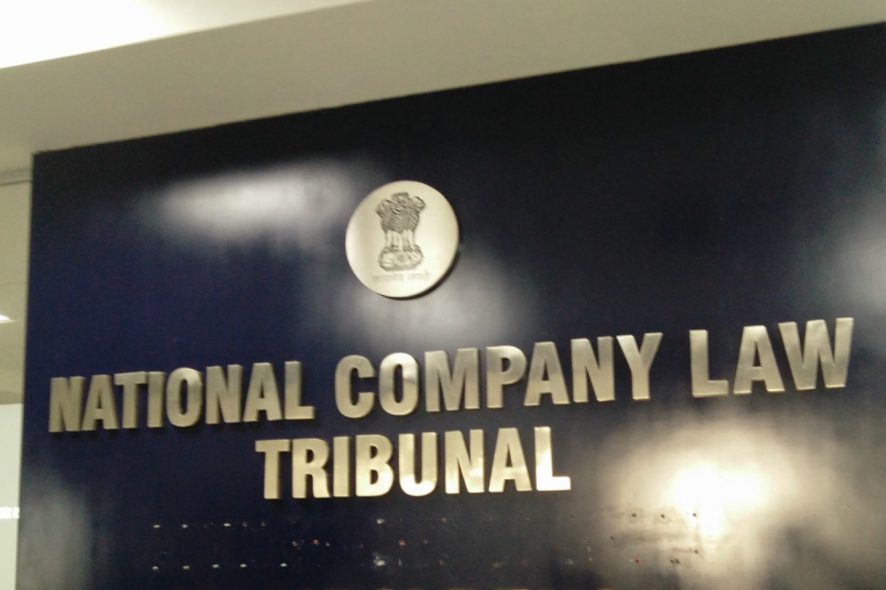National Company Law Tribunal, Mumbai: The Coram of H.V. Subba Rao, Judicial Member addressed the relevancy of insufficiency of stamp duty under Section 7 proceedings of Insolvency and Bankruptcy Code, 2016
“…a Section 7 application under the IBC can be filed in a simple form prescribed in the Code even without any pleadings.”
Point of Reference:
Whether the Debenture Trust Deed dated 1st March, 2014 and Redeemable Non-Convertible Debenture Subscription Agreement dated 1st March, 2014, shall be impounded and be sent for payment of requisite stamp duty in accordance with the Maharashtra Stamp Act?
Background
Main company petition was filed by M/s Vistara ITCL (India) Limited as Financial Creditors against M/s Satra Properties (India) Limited who was the Corporate Debtor under Section 7 of the Code for initiation of insolvency proceedings against the Corporate Debtor.
During the pendency of the above-stated Company Petition, the Corporate Debtor filed a Miscellaneous Application.
Petitioner/Corporate Debtor contended that the (i) Secured Redeemable Non-Convertible Debenture Subscription Agreement dated 1st March 2014 and the (ii) Debenture Trust Deed dated 1st March 2014 filed in the Company Petition cannot be looked into nor relied upon by the Financial Creditors till the deficit stamp duty payable on the above two instruments is paid in accordance with the provisions of the Maharashtra Stamp Act.
Both the members of the tribunal had ordered initiation of CIRP against the Corporate Debtor vide an order concurring with each other and by observing that the ‘debt’ and ‘default’ stood proved even without relying on the Debenture Trust Deed and NCD Subscription Agreement.
Judicial Member went ahead and partially allowed the Miscellaneous Application while holding that the Debenture Trust Deed and Redeemable Non-Convertible Debenture Subscription Agreement shall be impounded and be sent for payment of requisite Stamp Duty in accordance with Maharashtra Stamp Act and issued necessary directions to the Registrar.
Whereas, the Technical Member without expressing any opinion on the issue of stamp duty directed the Registry to immediately place the record before the President for constituting appropriate Bench for an opinion so that the order in M.A is rendered in accordance with the majority opinion.
Hence, the above M.A. was referred for independent opinion of the third member.
Core Issues:
- Whether the pleas of deficit stamp duty, non-payment of stamp duty can be raised by a Corporate Debtor in a Section 7 application more so when the ‘debt’ and ‘default’ are proved even without relying on those documents?
- If so at what stage and before whom?
Coram expressed that a Section 7 application under the IBC can be filed in a simple form prescribed in the Code even without any pleadings. Similarly, the ‘debt’ and ‘default’ can be proved through the records of ‘debt’ and ‘default’ maintained by the “information utility” even without filing any documents by the party.
When once the Adjudicating Authority is satisfied with these two legal requirements and if the application is complete in accordance with the Code, the Adjudicating Authority has no option except to admit the Company Petition without going into any other trivial technical issues raised by the Corporate Debtor.
Hence, the Tribunal opined that the plea of Stamp Duty in the present matter is not available to the Corporate Debtor when once the debt and default are proved without looking into the documents.
“…as per the terms and conditions of the NCD Subscription Agreement it is the Petitioner/Corporate Debtor that shall bear all documentation charges (including stamp duty) legal and valuation charges.”
Since it was the very case of the petitioner that the documents upon which the Financial Creditors were relying were novated and the respondent stood discharged of the liability in view of the larger understanding and overall settlement. Hence, the petitioner had no legal right to insist on impounding the above document.
When and before whom the issue of stamp duty will be raised?
From the provisions of the Maharashtra Stamp Act and Indian Stamp Act, it is clear that a duty is cast upon the authority before whom the document is sought to be used as evidence by the party for the purpose of enforcing the contractual rights and obligations.
Therefore, proper course of action needs to be adopted to the Miscellaneous Application without getting into the issue of stamp duty as it was irrelevant and uncalled for in a Section 7 application more so when the ‘debt’ and ‘default’ are proved otherwise without looking into those documents.
In view of the above M.A was dismissed. [Vistra ITCL (India) Ltd. v. Satra Properties (India) Ltd., 2022 SCC OnLine NCLT 15, decided on 10-2-2022]
Appearance:
For the Applicant: Mr. Nausher Kohli, Advocate
For the Respondents: Mr. Pulkit Sharma, Advocate







